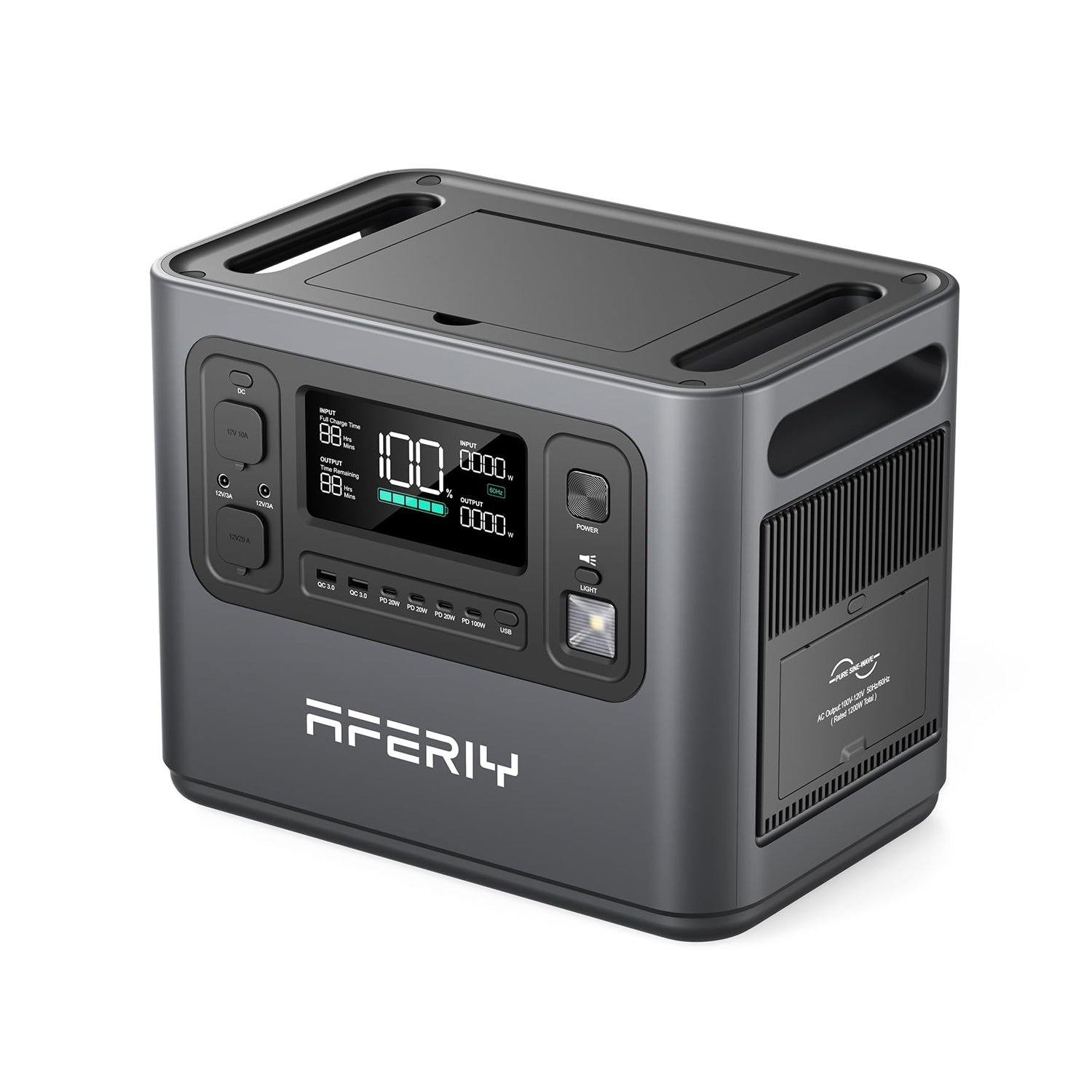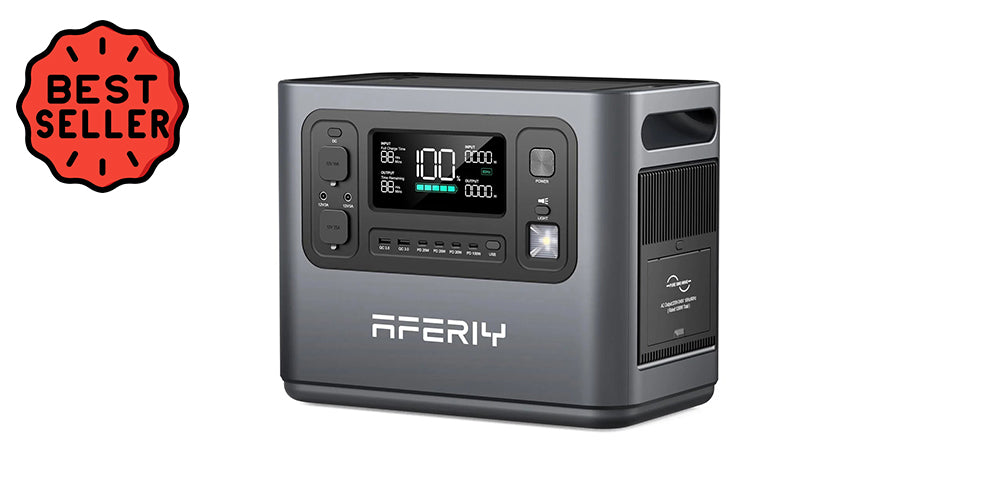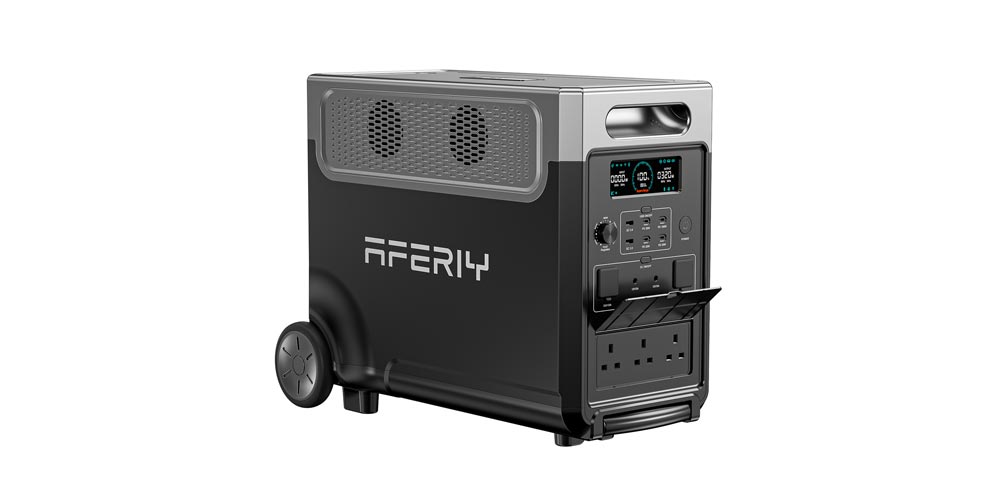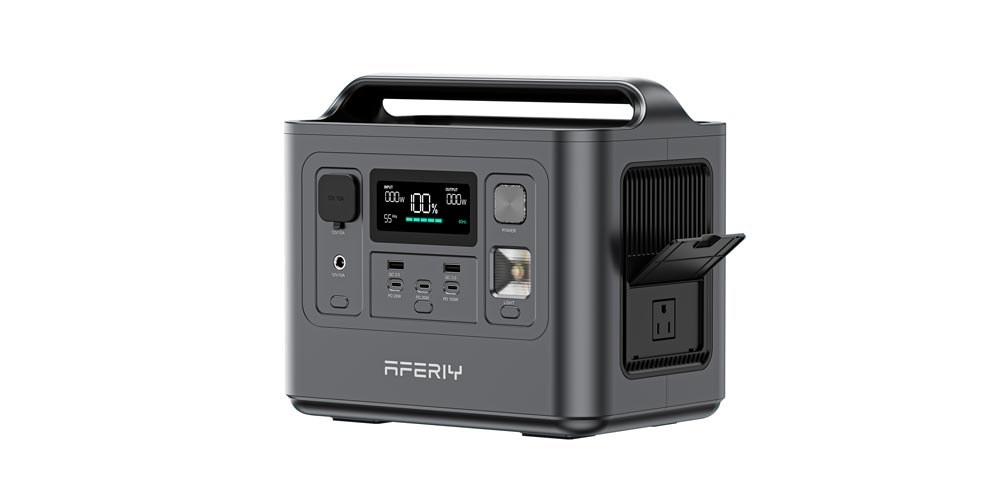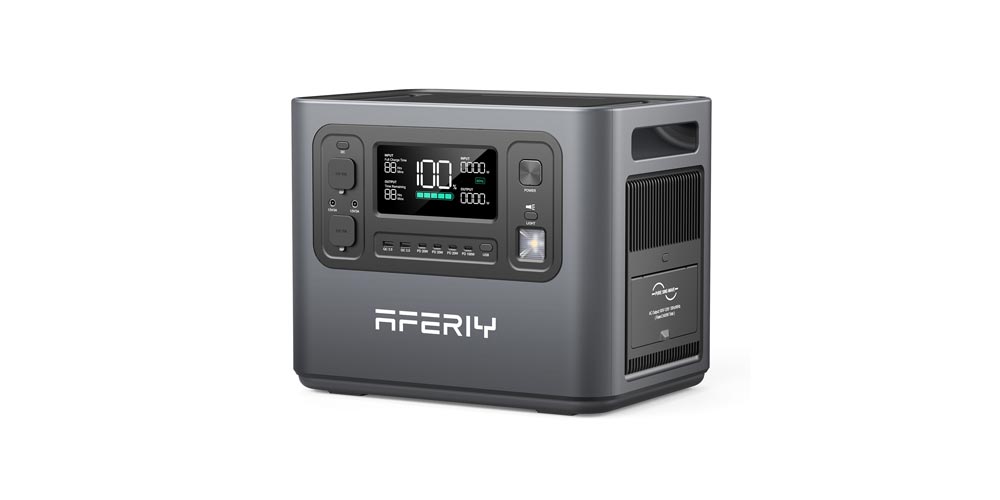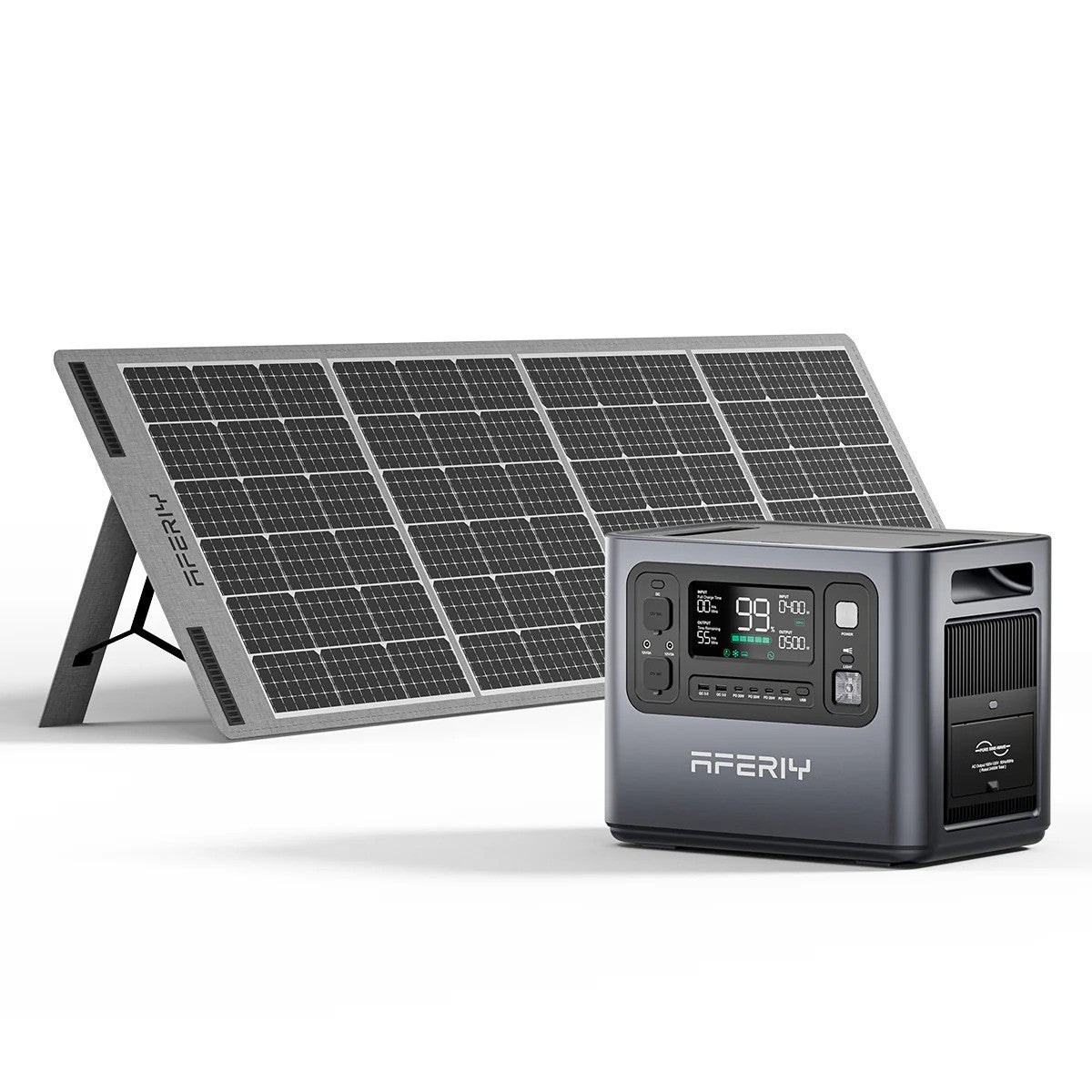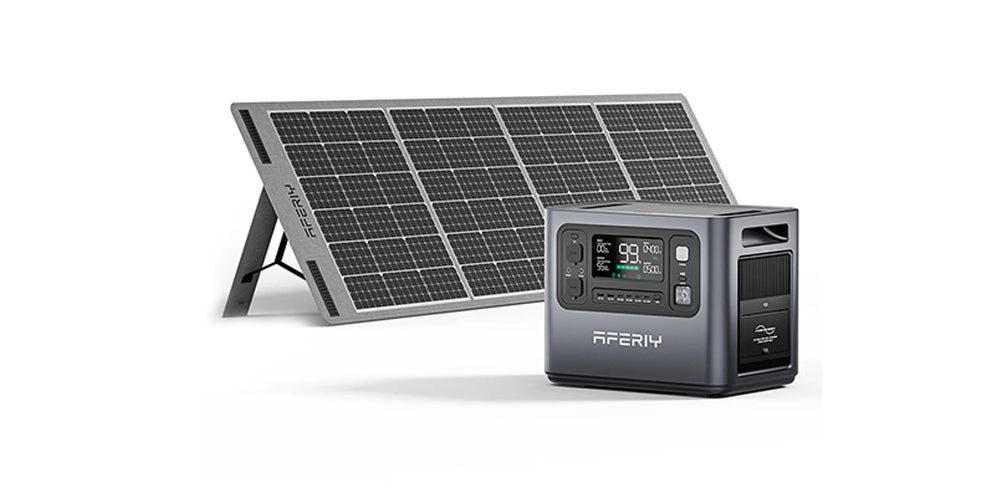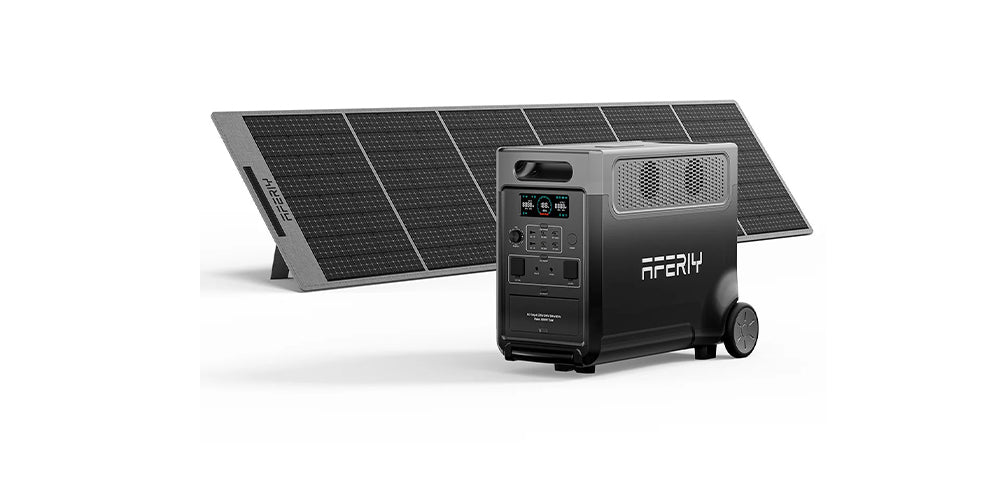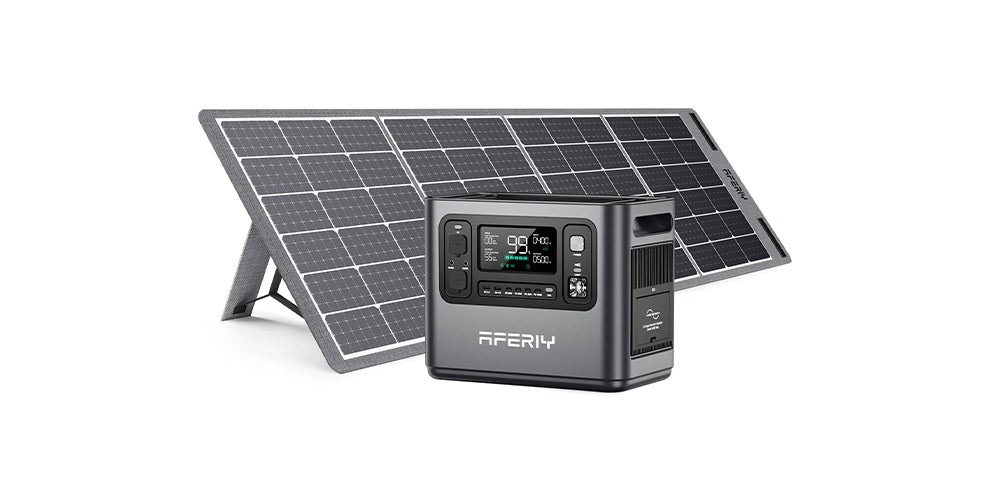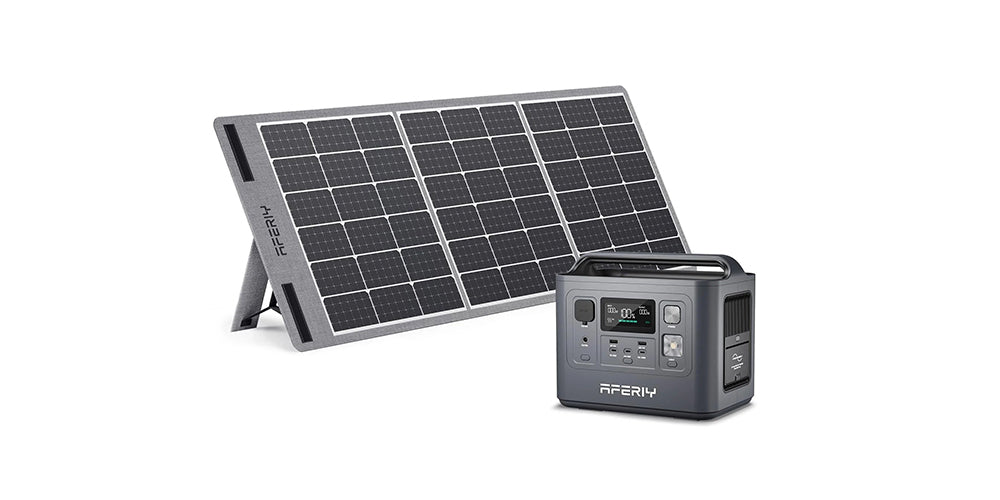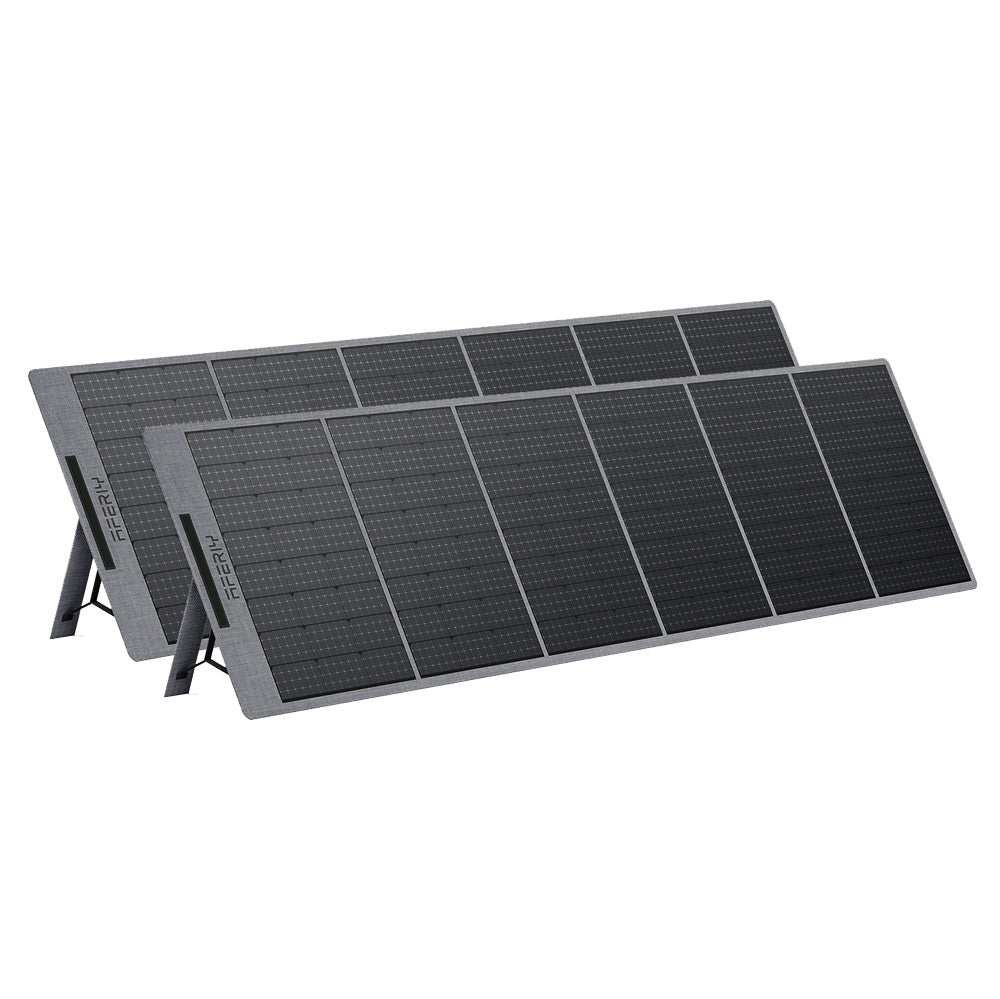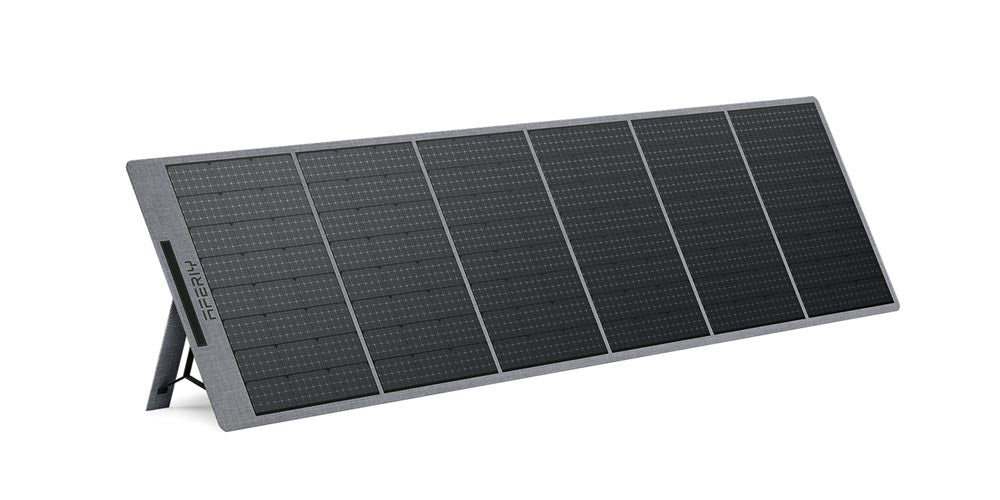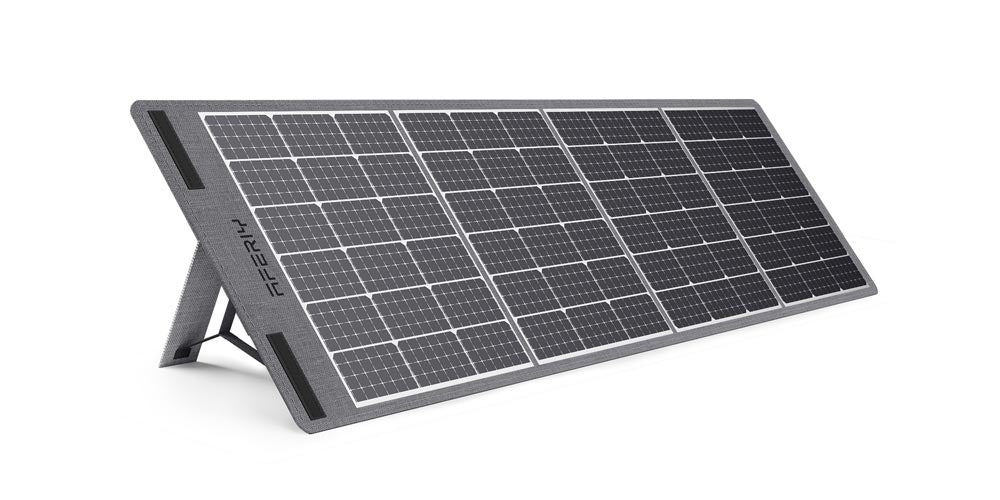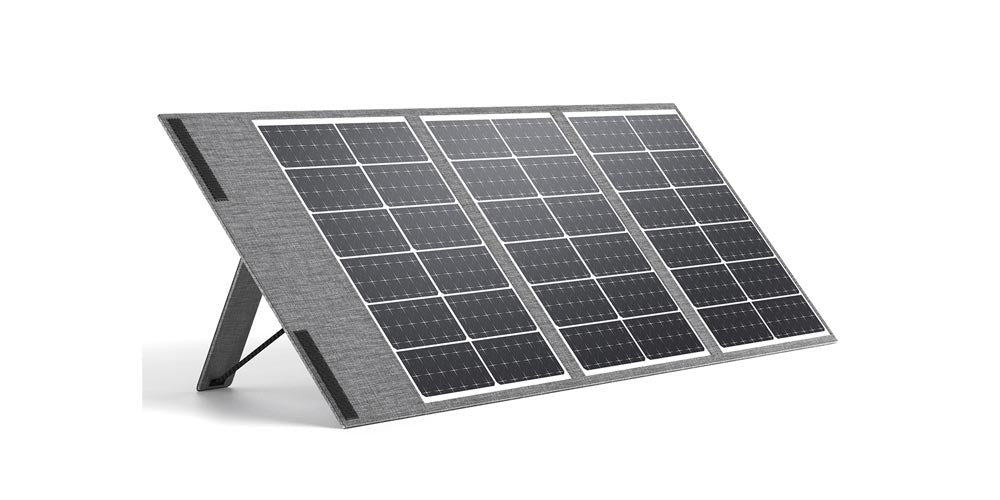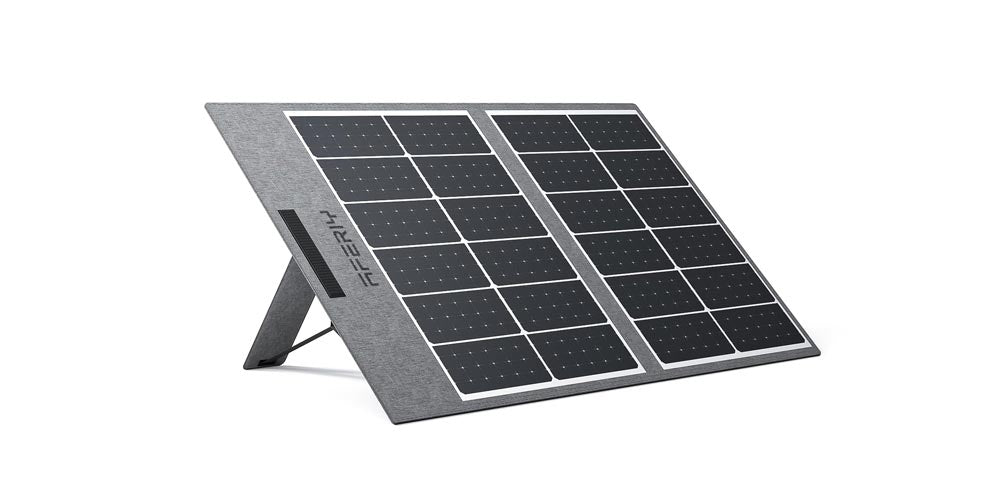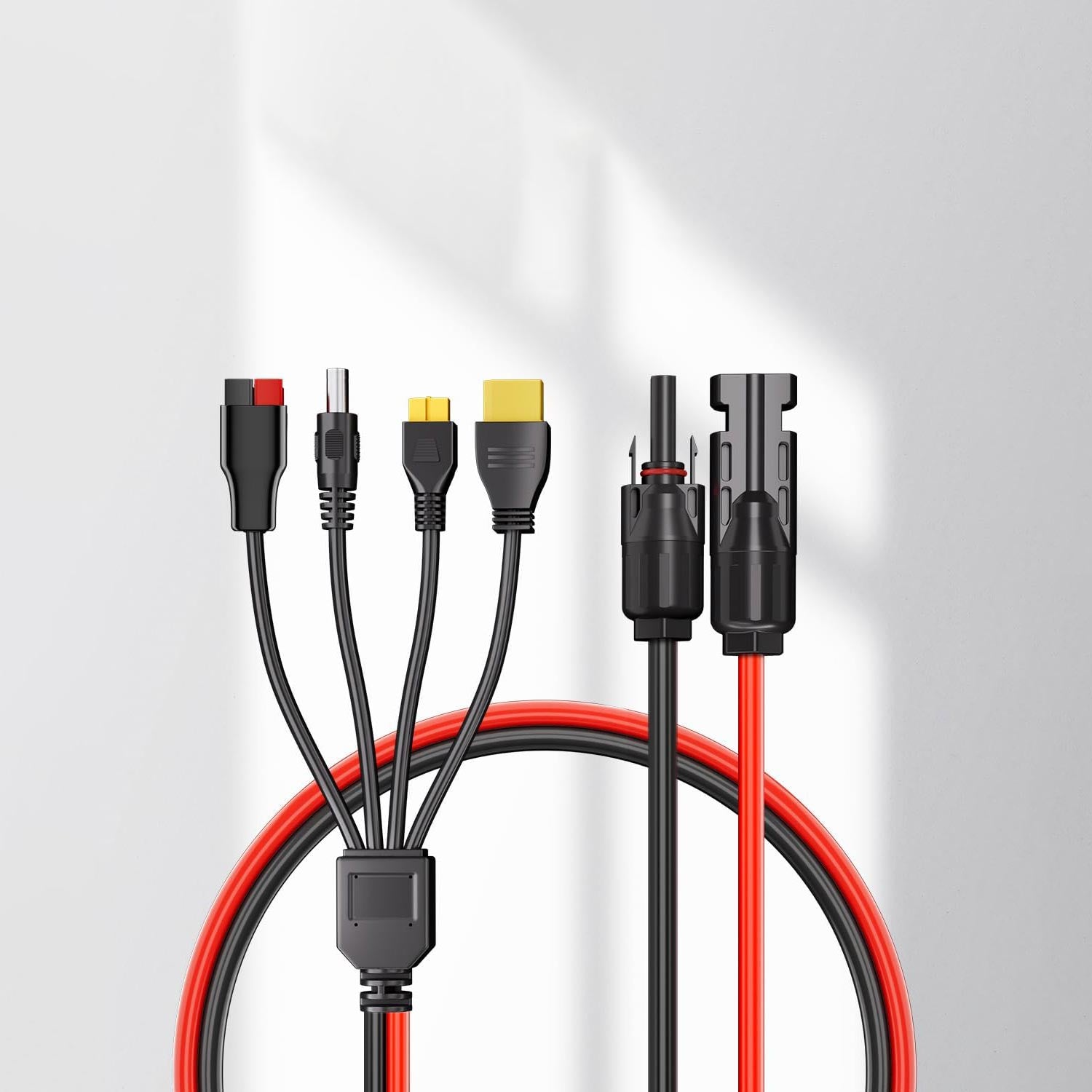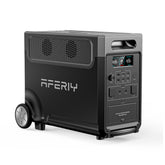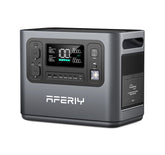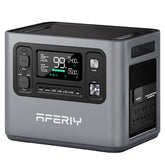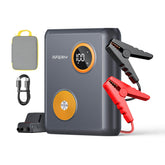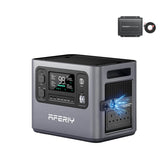Filter
10 results
Featured
- Featured
- Best selling
- Alphabetically, A-Z
- Alphabetically, Z-A
- Price, low to high
- Price, high to low
- Date, old to new
- Date, new to old
Sort
Sort by:
- Featured
- Best selling
- Alphabetically, A-Z
- Alphabetically, Z-A
- Price, low to high
- Price, high to low
- Date, old to new
- Date, new to old
-
AFERIY P310 3600W 3840Wh Expandable Portable Power Station
Massive 3840Wh Capacity 3600W AC Pure Sine Wave Output Max 2200W AC Input; Max 2000W Solar Input Long-Lasting LiFePO4 Battery with more than 4000 Cycles and Lifespan of up to 11 Years Plug & Play UPS Home Backup Solution Portable Design with Wheels Retractable Handle Power 99% of High-Wattage Appliances 7 Years Warranty- From £1,099.00
£1,999.00- From £1,099.00
- Unit price
- / per
-
AFERIY P210 2400W 2048Wh Portable Power Station
Smart App Control via Bluetooth or WiFi 4800W Peak Surge Power 2400W AC Pure Sine Wave Inverter 2048Wh Large Capacity Recharge from 0-100% in 2 Hours (AC input); 13 Outputs for Multiple Devices LiFePo4 Battery with 4000+ Life Cycles to 80% 4 Ways to Recharge (AC/Solar/Car/AC+Solar) Maximum AC Input of 1100W (220V-240V); Adjustable Input Power of 300W/500W/700W/900W/1100W 500W Max MPPT. Solar Input 10ms UPS Battery Backup 7 Years Manufacturer's Warranty P210 vs P280 >>>- From £616.00
£1,329.00- From £616.00
- Unit price
- / per
-
AFERIY P010 800W 512Wh Portable Power Station
Peace of Mind: 7-years-long superb warranty Huge Output: 800W AC pure sine wave High Capacity: 512Wh can power most devices 8 Outlets: charging multi-devices at once Easy to carry: weights only 6.5kg/14lbs Fast Charging: 0-80% capacity in 1 hour LiFePO4 Battery: up to 10 years of battery life Safe & Reliable: MPPT / BMS / UPS mode- From £260.00
£499.00- From £260.00
- Unit price
- / per
-
AFERIY P110 1200W 960Wh Portable Power Station
Large Capacity 960Wh and High Output 1200W 220-240V Pure Sine Wave AC Output, UPS Uninterruptible Power Mode Uses a Long-life LiFePO4 Battery, 3500+ Charge/Discharge Cycles Built-in High Safety Battery Management System (BMS) The Fast Full Charged in 1.5 Hours 4 Types of Charging Methods (AC/Solar/Car/AC+Solar) Power up to 12 Devices Simultaneously 7-Year Manufacturer's Warranty- From £379.00
£899.00- From £379.00
- Unit price
- / per
-
AFERIY P040 Portable Power Station 400W 256Wh
256Wh Capacity, 400W High Output Pure Sine Wave AC Output, UPS Mode LiFePO4 Battery, 3500 Cycles to 85%+ Capacity, Up to 10 Years Battery Life Safe BMS Battery Management System Fast Charge from 0%-100% within 1 Hour Lightweight and Compact, Easy to Carry 7 Years Long Superb Warranty- £179.00
£249.00- £179.00
- Unit price
- / per
-
AFERIY P210 2400W 2048Wh Silver Portable Power Station
Smart App Control via Bluetooth or WiFi 4800W Peak Surge Power 2400W AC Pure Sine Wave Inverter 2048Wh Large Capacity Recharge from 0-100% in 2 Hours (AC input); LiFePo4 Battery with 4000+ Life Cycles to 80% 5 Charging Ways (AC/Solar/Car/AC+Solar/Generator) 13 Outputs for Multiple Devices 500W Max MPPT. Solar Input UPS Battery Backup(10ms) 7 Years Manufacturer's Warranty- From £616.00
£1,329.00- From £616.00
- Unit price
- / per
-
AFERIY P110-E 1200W 1008Wh Portable Power Station | APP Control
30% Smaller Than the Previous P110, with a Larger 1008Wh Capacity – More power, less bulk. Smart App Control – Monitor and manage your power remotely with ease. 1200W AC Output (Pure Sine Wave, 220–240V) – Safe for all your essential devices. Ultra-Quiet Operation (<35dB) – Peaceful power even at night. Long-Life LiFePO₄ Battery (2500+ Cycles) – Reliable energy for over 6 years. Fast Recharge in 1.6 Hours – Get back to full power in no time. 4 Charging Methods (AC / Solar / Car / AC+Solar) – Flexible for every situation. Power up to 12 Devices Simultaneously – One station for all your needs. 7-Year Warranty – Confidence backed by long-term support.- From £419.00
£999.00- From £419.00
- Unit price
- / per
-
AFERIY P280 2800W 2048Wh Portable Power Station
New product Pre-order, dispatch from 31 Dec. P280 vs P210 >>> Smart App Control via Bluetooth or WiFi 2800W AC Pure Sine Wave Inverter Recharge from 0-100% in 1.5 Hours (AC input); 13 Outputs for Multiple Devices LiFePo4 Battery with 4000+ Life Cycles to 80% 4 Ways to Recharge (AC/Solar/Car/AC+Solar) Maximum AC Input of 1800W (220V-240V); Adjustable Input Power of 250W/500W/1000W/1500W/1800W 1200W Max MPPT. Solar Input 10ms UPS Battery Backup 7 Years Manufacturer's Warranty- From £749.00
£1,299.00- From £749.00
- Unit price
- / per
-
AFERIY 2000A 12V Car Battery Jump Starter
Peak current of 2000A, easily starts engines up to 6.0L gasoline or 3.0L diesel. High-capacity 27,500 mAh battery combines jump-starting and power bank functions. 60W PD fast-charging technology enables a full recharge in just 1.3 hours. Dual USB outputs (QC3.0 + 5V/2.4A) and DC port (15V/10A) allow you to charge multiple devices simultaneously. HD smart LED display provides clear monitoring of battery level and operating status. 3-in-1 lighting (steady / strobe / SOS), perfect for emergencies. Comprehensive protection against overcharge, short circuit, and other risks ensures safe use. Durable and rugged housing, built to last.- £106.00
£149.00- £106.00
- Unit price
- / per
-
AFERIY P280 Portable Power Station With DC-DC 580W Charger
New product Pre-order, dispatch from 30 Dec. Smart App Control via Bluetooth or WiFi 2800W AC Pure Sine Wave Inverter Recharge from 0-100% in 1.5 Hours (AC input); 13 Outputs for Multiple Devices LiFePo4 Battery with 4000+ Life Cycles to 80% 4 Ways to Recharge (AC/Solar/Car/AC+Solar) Maximum AC Input of 1800W (220V-240V); Adjustable Input Power of 250W/500W/1000W/1500W/1800W 1200W Max MPPT. Solar Input 10ms UPS Battery Backup 7 Years Manufacturer's Warranty- From £908.00
£1,548.00- From £908.00
- Unit price
- / per
